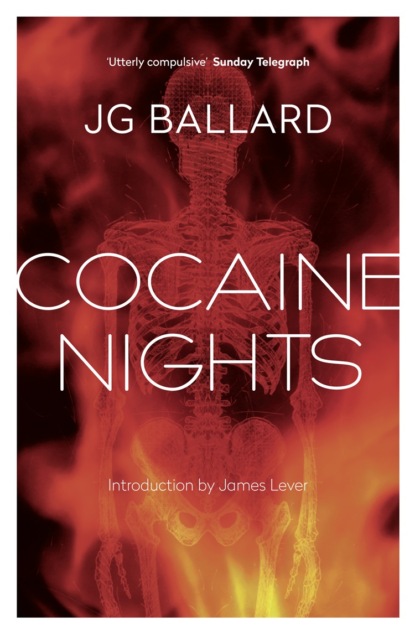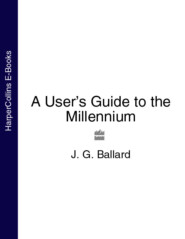По всем вопросам обращайтесь на: info@litportal.ru
(©) 2003-2024.
✖
Cocaine Nights
Настройки чтения
Размер шрифта
Высота строк
Поля
‘It does look rather bad … Frank told me not to worry you, but I felt I had to call.’
‘Thank God you did. Is he actually under arrest? Have you told the British Consul in Marbella?’
‘Malaga, yes. The Consul’s closely involved. It’s an important case, I’m surprised you didn’t read about it.’
‘I’ve been abroad. I haven’t seen an English paper for weeks. In Lhasa there’s not much demand for news about the Costa del Sol.’
‘I dare say. The Fleet Street reporters were all over the club. We had to close the bar, you know.’
‘Never mind the bar!’ I tried to get a grip on the conversation. ‘Is Frank all right? Where are they holding him?’
‘He’s fine. On the whole he’s taking it well. He’s very quiet, though that’s understandable. He has a lot to think over.’
‘But what are the charges? Mr Hennessy …?’
‘Charges?’ There was a pause as ice-cubes rattled. ‘There seem to be a number. The Spanish prosecutor is drawing up the articles of accusation. We’ll have to wait for them to be translated. I’m afraid the police aren’t being very helpful.’
‘Do you expect them to be? It sounds like a frame-up.’
‘It’s not as simple as that … one has to see it in context. I think you should come down here as soon as you can.’
Hennessy had been professionally vague, presumably to protect the Club Nautico, one of the more exclusive sports complexes on the Costa del Sol, which no doubt depended for its security on regular cash disbursements to the local constabulary. I could well imagine Frank, in his quizzical way, forgetting to slip the padded manila envelope into the right hands, curious to see what might result, or omitting to offer his best suite to a visiting commandant of police.
Parking fines, building-code infringements, an illegally-sited swimming pool, perhaps the innocent purchase from a dodgy dealer of a stolen Range Rover – any of these could have led to his arrest. I sped along the open road towards Sotogrande, as a sluggish sea lapped at the chocolate sand of the deserted beaches. The coastal strip was a nondescript plain of market gardens, tractor depots and villa projects. I passed a half-completed Aquapark, its excavated lakes like lunar craters, and a disused nightclub on an artificial hill, the domed roof resembling a small observatory.
The mountains had withdrawn from the sea, keeping their distance a mile inland. Near Sotogrande the golf courses began to multiply like the symptoms of a hypertrophied grassland cancer. White-walled Andalucian pueblos presided over the greens and fairways, fortified villages guarding their pastures, but in fact these miniature townships were purpose-built villa complexes financed by Swiss and German property speculators, the winter homes not of local shepherds but of Düsseldorf ad-men and Zürich television executives.
Along most of the Mediterranean’s resort coasts the mountains came down to the sea, as at the Côte d’Azur or the Ligurian Riviera near Genoa, and the tourist towns nestled in sheltered bays. But the Costa del Sol lacked even the rudiments of scenic or architectural charm. Sotogrande, I discovered, was a town without either centre or suburbs, and seemed to be little more than a dispersal ground for golf courses and swimming pools. Three miles to its east I passed an elegant apartment building standing on a scrubby bend of the coastal road, the mock-Roman columns and white porticos apparently imported from Las Vegas after a hotel clearance sale, reversing the export to Florida and California in the 1920s of dismantled Spanish monasteries and Sardinian abbeys.
The Estepona road skirted a private airstrip beside an imposing villa with gilded finials like a castellated fairy battlement. Their shadows curved around a white onion-bulb roof, an invasion of a new Arab architecture that owed nothing to the Maghreb across the Strait of Gibraltar. The brassy glimmer belonged to the desert kingdoms of the Persian Gulf, reflected through the garish mirrors of Hollywood design studios, and I thought of the oil company atrium in Dubai that I had walked through a month earlier, pursuing my courtship of an attractive French geologist I was profiling for L’Express.
‘The architecture of brothels?’ she commented when I told her of my longstanding plans for a book during our rooftop lunch. ‘It’s a good idea. Rather close to your heart, I should think.’ She pointed to the retina-stunning panorama around us. ‘It’s all here for you, Charles. Filling-stations disguised as cathedrals …’
Could Frank, with his scruples and finicky honesty, have chosen to break the law on the Costa del Sol, a zone as depthless as a property developer’s brochure? I approached the outskirts of Marbella, past King Saud’s larger-than-life replica of the White House and the Aladdin’s cave apartments of Puerto Banus. Unreality thrived on every side, a magnet to the unwary. But Frank was too fastidious, too amused by his own weaknesses, to commit himself to any serious misdemeanour. I remembered his compulsive stealing after we returned to England, slipping corkscrews and cans of anchovies into his pockets as we trailed after our aunt through the Brighton supermarkets. Our grieving father, taking up his professorial chair at Sussex University, was too distracted to think of Frank, and the petty thefts forced me to adopt him as my little son, the sole person concerned enough to care for this numbed nine-year-old, even if only to scold him.
Luckily, Frank soon outgrew this childhood tic. At school he became a wristy and effective tennis player, and sidestepped the academic career his father wanted for him, taking a course in hotel management. After three years as assistant manager of a renovated art deco hotel in South Miami Beach he returned to Europe to run the Club Nautico at Estrella de Mar, a peninsular resort twenty miles to the east of Marbella. Whenever we met in London I liked to tease him about his exile to this curious world of Arab princes, retired gangsters and Eurotrash.
‘Frank, of all the places to pick you choose the Costa del Sol!’ I would exclaim. ‘Estrella de Mar? I can’t even imagine it …’
Amiably, Frank always replied: ‘Exactly, Charles. It doesn’t really exist. That’s why I like the coast. I’ve been looking for it all my life. Estrella de Mar isn’t anywhere.’
But now nowhere had at last caught up with him.
When I reached the Los Monteros Hotel, a ten-minute drive down the coast from Marbella, there was a message waiting for me. Señor Danvila, Frank’s lawyer, had called from the magistrates’ court with news of ‘unexpected developments’, and asked me to join him as soon as possible. The over-polite manners of the hotel manager and the averted eyes of the concierge and porters suggested that whatever these developments might be, they were fully expected. Even the players returning from the tennis courts and the couples in towelling robes on their way to the swimming pools paused to let me pass, as if sensing that I had come to share my brother’s fate.
When I returned to the lobby after a shower and change of clothes the concierge had already called a taxi.
‘Mr Prentice, it will be simpler than taking your own car. Parking is difficult in Marbella. You have enough problems to consider.’
‘You’ve heard about the case?’ I asked. ‘Did you speak to my brother’s lawyer?’
‘Of course not, sir. There were some accounts in the local press … a few television reports.’
He seemed anxious to steer me to the waiting taxi. I scanned the headlines in the display of newspapers beside the desk.
‘What exactly happened? No one seems to know.’
‘It’s not certain, Mr Prentice.’ The concierge straightened his magazines, trying to hide from me any edition that might reveal the full story of Frank’s involvement. ‘It’s best that you take your taxi. All will be clear to you in Marbella …’
Señor Danvila was waiting for me in the entrance hall of the magistrates’ court. A tall, slightly stooped man in his late fifties, he carried two briefcases which he shuffled from hand to hand, and resembled a distracted schoolmaster who had lost control of his class. He greeted me with evident relief, holding on to my arm as if to reassure himself that I too was now part of the confused world into which Frank had drawn him. I liked his concerned manner, but his real attention seemed elsewhere, and already I wondered why David Hennessy had hired him.
‘Mr Prentice, I’m most grateful that you came. Unfortunately, events are now more … ambiguous. If I can explain –’
‘Where is Frank? I’d like to see him. I want you to arrange bail – I can provide whatever guarantees the court requires. Señor Danvila …?’
With an effort the lawyer uncoupled his eyes from some feature of my face that seemed to distract him, an echo perhaps of one of Frank’s more cryptic expressions. Seeing a group of Spanish photographers on the steps of the court, he beckoned me towards an alcove. ‘Your brother is here, until they return him to Zarzuella jail in Malaga this evening. The police investigation is proceeding. I am afraid that in the circumstances bail is out of the question.’
‘What circumstances? I want to see Frank now. Surely the Spanish magistrates release people on bail?’
‘Not in a case such as this.’ Señor Danvila hummed to himself, switching his briefcases in an unending attempt to decide which was the heavier. ‘You will see your brother in an hour, perhaps less. I have spoken to Inspector Cabrera. Afterwards he will want to question you about certain details possibly known to you, but there is nothing to fear.’
‘I’m glad to hear it. Now, what will they charge Frank with?’
‘He has already been charged.’ Señor Danvila was staring fixedly at me. ‘It’s a tragic affair, Mr Prentice, the very worst.’
‘But charged with what? Currency violations, tax problems …?’
‘More serious than that. There were fatalities.’
Señor Danvila’s face had come into sudden focus, his eyes swimming forwards through the thick pools of his lenses. I noticed that he had shaved carelessly that morning, too preoccupied to trim his straggling moustache.
‘Fatalities?’ It occurred to me that a cruel accident had taken place on the notorious coastal road, and perhaps had involved Frank in the deaths of Spanish children. ‘Was there a traffic accident? How many people were killed?’
‘Five.’ Señor Danvila’s lips moved as he counted the number, a total that exceeded all the possibilities of a humane mathematics. ‘It was not a traffic accident.’
‘Then what? How did they die?’
‘They were murdered, Mr Prentice.’ The lawyer spoke matter-of-factly, detaching himself from the significance of his own words. ‘Five people were deliberately killed. Your brother has been charged with their deaths.’
‘I can’t believe it …’ I turned to stare at the photographers arguing with each other on the steps of the courthouse. Despite Señor Danvila’s solemn expression, I felt a sudden rush of relief. I realized that a preposterous error had been made, an investigative and judicial bungle that involved this nervous lawyer, the heavy-footed local police and the incompetent magistrates of the Costa del Sol, their reflexes confused by years of coping with drunken British tourists. ‘Señor Danvila, you say Frank murdered five people. How, for heaven’s sake?’
‘He set fire to their house. Two weeks ago – it was clearly an act of premeditation. The magistrates and police have no doubt.’
‘Well, they should have.’ I laughed to myself, confident now that this absurd error would soon be rectified. ‘Where did these murders take place?’
‘At Estrella de Mar. In the villa of the Hollinger family.’
‘And who were the victims?’










